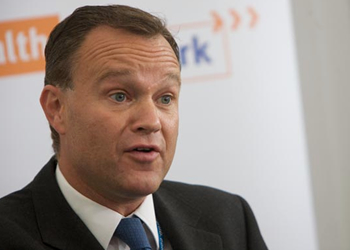UK official starts Sudan visit on Tuesday
January 13, 2014 (KHARTOUM) – The United Kingdom Foreign Office Minister for Africa Mark Simmonds will arrive in the Sudanese capital on Tuesday for talks with officials here.

The spokesman pointed to Britain’s interest in cooperation with Sudan on issues aligned with the legacy of the two countries in various fields.
Last November the Sudanese foreign minister Ali Karti blasted Britain’s stances towards his country saying that London had demonstrated hostility towards Khartoum in all forums and had backed all negative decisions and sanctions committees.
Karti stressed that the UK arranged for UNSC resolution 1706 which sought to put Darfur under the mandate of the United Nations peacekeeping forces, as well as UNSC resolution 1593 which referred the situation in Darfur to the International Criminal Court (ICC).
He affirmed that the Sudanese government supports closer ties with London but said Khartoum has yet to see any signs for rapprochement in the UK’s official policies, legislations or organizations.
The top Sudanese diplomat added that one state minister at the UK foreign ministry, in reference to Simmonds, proclaimed himself a speaker on behalf of the ICC concerning president Omer Hassan Al-Bashir’s visit to Saudi Arabia for the Mecca pilgrimage.
Bashir is sought by the ICC for genocide, crimes against humanity, and war crimes he allegedly masterminded in Sudan’s western region of Darfur.
The talks will likely tackle the ongoing crisis in South Sudan that broke out last month and later developed into a nationwide military conflict between government forces and those loyal to former Vice president Riek Machar.
The two sides are currently negotiating in the Ethiopian capital under the auspices of the Intergovernmental Authority on Development (IGAD) .
(ST)
